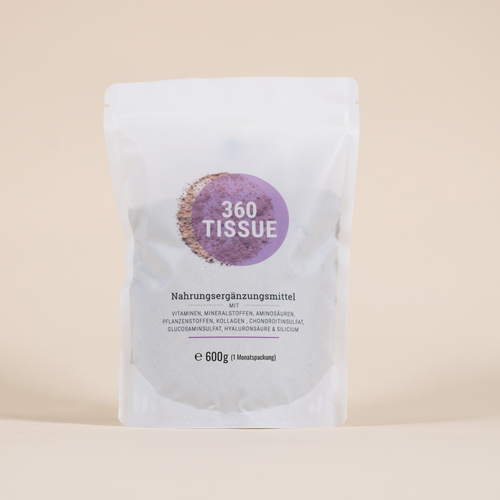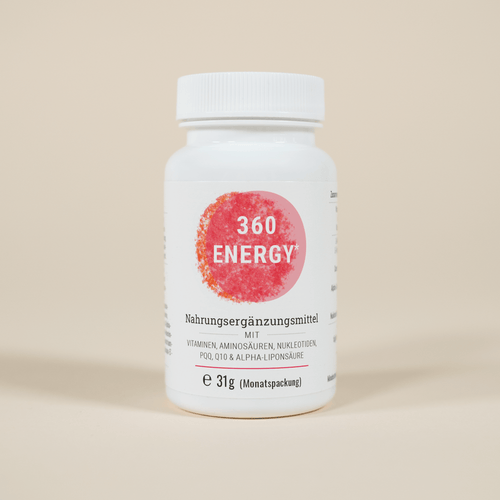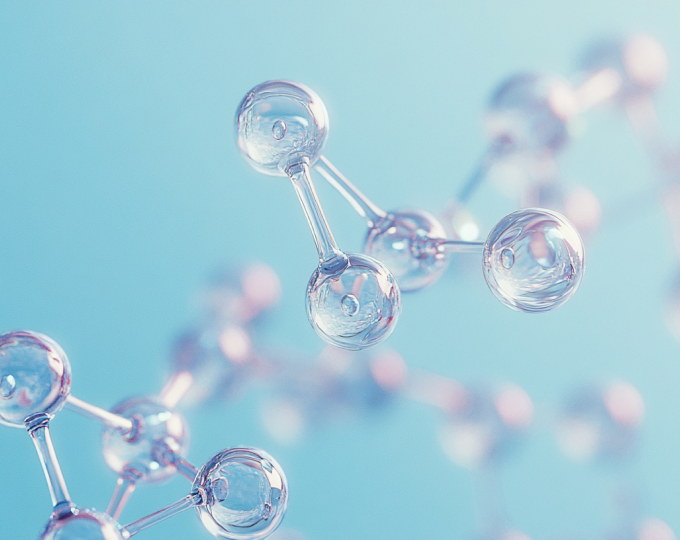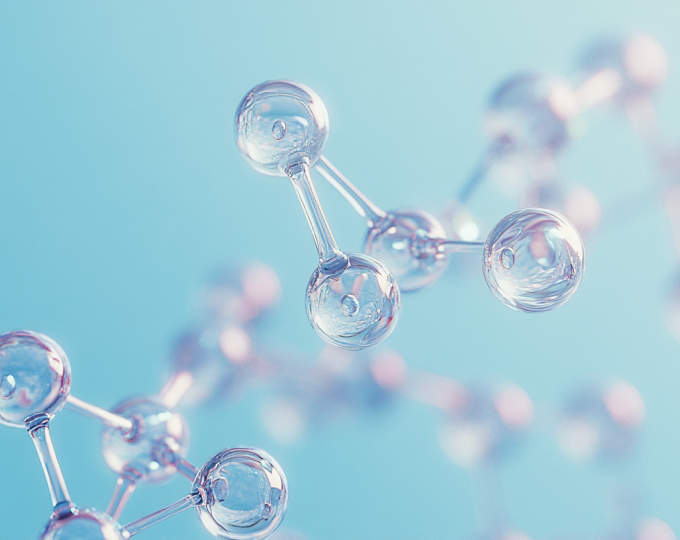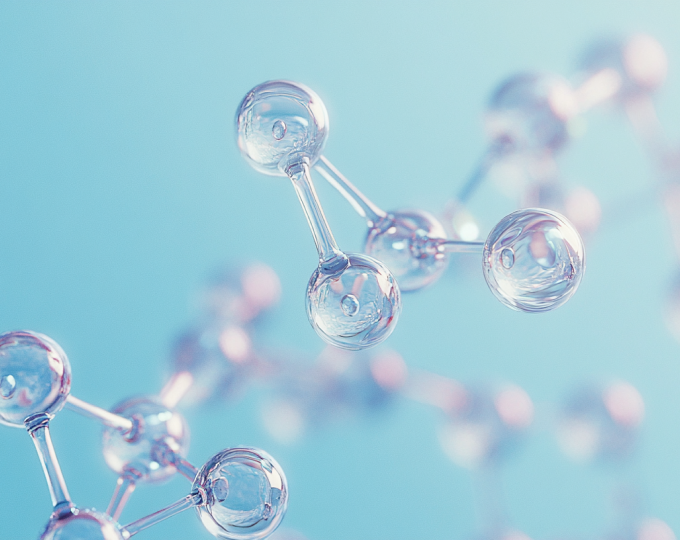Themen dieses Blogartikels:
What is Methionine?
Methionine is an essential amino acid. This means that it must be ingested through food.
What are the functions of Methionine?
Methionine is a proteinogenic amino acid, i.e. it is required for the synthesis of proteins. Methionine is also a glucogenic amino acid that can be introduced into the citrate cycle for energy production. Methionine is part of the homocysteine metabolism, as SAM (S-adenosylmethionine), the most important methyl group donor, is formed from methionine. Methionine contains sulphur, which is why it is part of sulphur-containing proteins and can also form cysteine. Cysteine is an antioxidant and can be used for the synthesis of glutathione, among other things. Methionine is also involved in nucleotide production, which is why it is important for normal cell division.1
What makes Methionine unique?
Methionine contains sulphur, but this is not necessarily reactive as it occurs in the middle of the amino acid. The amino acid is also particularly important for the liver, as it could have an influence on detoxification as a precursor of cysteine and therefore glutathione2. In normal doses, methionine supports the homocysteine balance.3
How much Methionine do you need per day?
The German Nutrition Society (DGE) has not yet issued a recommendation on daily methionine intake. The requirement of an adult is probably around 10 to 20 mg methionine per kilogram of body weight per day - age, gender and individual state of health are decisive factors here. In children and adolescents, the requirement may be slightly higher due to growth. Pregnant women and breastfeeding mothers also need a little more of this essential amino acid.6
When do you need Methionine most?
In the case of urinary tract infections, methionine can inhibit the growth of some bacteria. Methionine is also particularly valued for its antioxidant properties and its involvement in methyl metabolism in the area of liver regeneration and stress.5
How does a Methionine deficiency develop and how does it manifest itself?
Methionine is found in many protein-containing foods, so a deficiency is rather rare. Nevertheless, there are certain groups of people who can develop a deficiency. These include, for example, people with frequent urinary tract infections: For them, the methionine stored in the body acidifies the urine, which increases the need for this nutrient. Allergy sufferers and people with liver disease should also make sure they have a sufficient supply. A methionine deficiency can lead to symptoms such as hair loss, water retention in the arms and legs and problems urinating.7
What happens if there is an overdose of Methionine?
If too much methionine is taken, homocysteine can be elevated and thus disrupt the balance of this metabolic pathway. Possible consequences can include vomiting, nausea, diarrhea, drowsiness and irritability8. Anyone who takes too much methionine over a longer period of time risks an imbalance in the mineral balance due to the uric acid effect, as more calcium is excreted.9
Which foods are particularly high in Lysine?
Salmon, shrimp, turkey, chicken and soy as well as nuts and wheat germ contain comparatively high levels of methionine. Methionine is often a problem among vegan protein sources, as it tends to be less abundant than other amino acids.
This dictionary entry is based on carefully researched sources:
Bibliography & Sources
- https://flexikon.doccheck.com/de/Genetische_Code
- https://www.naturheilpraxis-elke-ruehl.de/lexikon/m/methionin.html
- https://tud.qucosa.de/api/qucosa%3A24971/attachment/ATT-0/?L=1
- https://www.urologielehrbuch.de/methionin.html
- https://fet-ev.eu/proteine-aminosaeuren/
- https://www.vitalstoff-lexikon.de/Aminosaeuren/Methionin/Zuühr
- https://www.coda-kaiser-apotheke-wuerselen.de/gesundheitsbibliothek/index/l-methionin/
- https://www.gelbe-liste.de/wirkstoffe/Methionin_1407
- https://www.thieme-connect.com/products/ejournals/abstract/10.1055/s-2008-1060650









